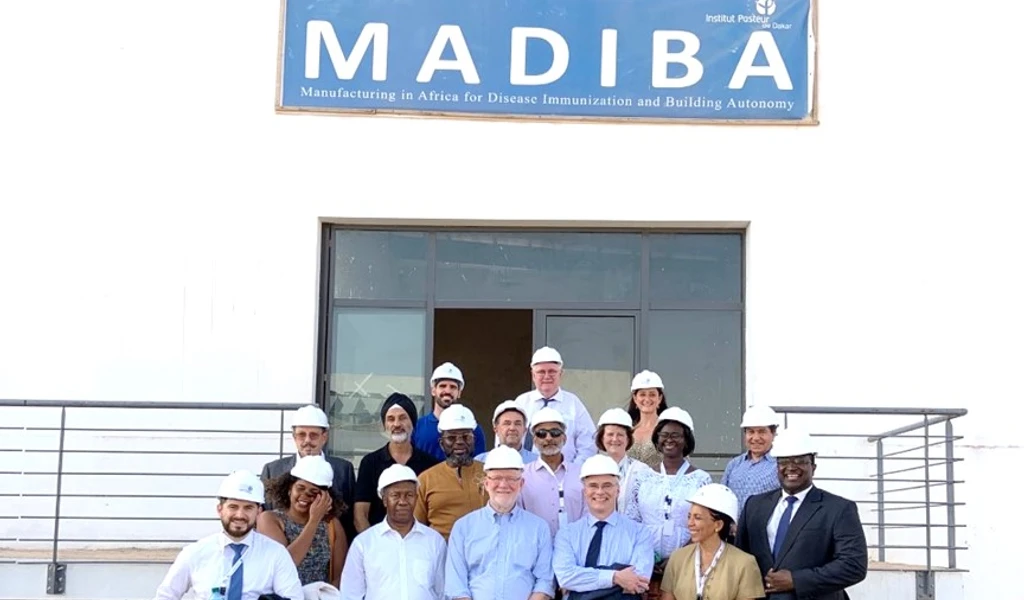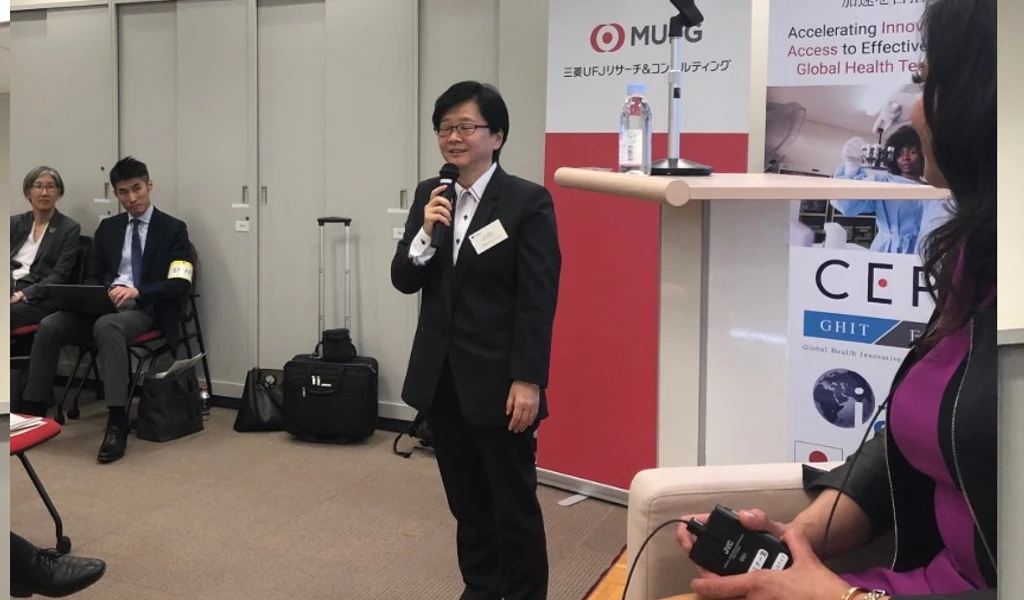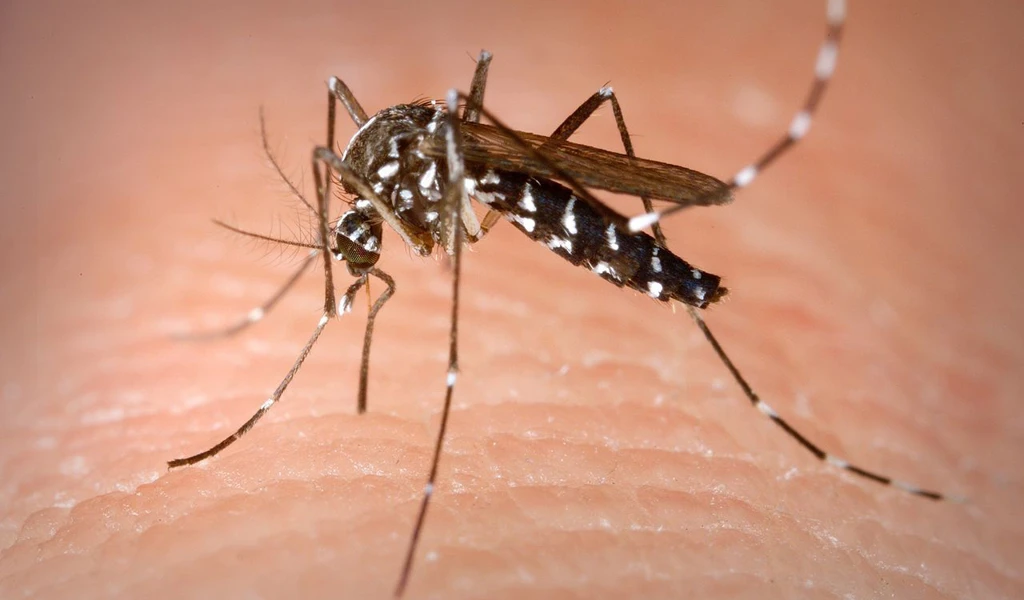Stabilised mRNA vaccine technology aims to end need for frozen storage and improve access

CEPI to initially provide up to USD850,000 to 20Med to advance development of 20Med's bioresponsive polymeric nanoparticle platform for mRNA stabilisation and delivery.
20Med vaccine technology could improve access to mRNA vaccines by removing the need for frozen storage, enabling easier distribution and improving equitable access to vaccines.
February 2, 2023; OSLO, NORWAY: CEPI, the Coalition for Epidemic Preparedness Innovations, and 20Med, a leader in non-viral delivery of genetic vaccines using polymeric nanoparticles, have today announced a partnership to advance the development of 20Med's bioresponsive polymeric nanoparticle technology, which could help end the need for frozen storage of mRNA vaccines. In the near-term, CEPI will provide up to USD850,000 to develop a proof-of-concept for 20Med's nanoparticle platform in the first part of the project, as well as for preclinical studies to assess whether the technology can deliver mRNA vaccines as effectively as the currently approved technology used for mRNA delivery, known as lipid nanoparticles.
Overcoming the need for frozen storage of mRNA vaccines
Advances in mRNA vaccine technology have been critical to the global response to COVID-19, but one of the major challenges the world faced in getting these life-saving vaccines to vulnerable populations—particularly those people in poorer countries—was the need to store them at very low temperatures. The need for frozen storage of the current generation of mRNA vaccines is due to the fragility of mRNA molecules.
An mRNA vaccine must get inside the target cells so that they can read these genetic instructions and produce the proteins needed to stimulate an immune response. Currently, fatty (lipid) nanoparticles are used to encase these fragile mRNA molecules, but frozen storage is still needed to transport these vaccines. Once removed from the freezer, these vaccines usually have to be used within a short timeframe.
20Med's bioresponsive polymeric nanoparticle technology is designed to overcome this challenge by protecting the mRNA against degradation, removing the need for frozen storage altogether while enabling efficient entry of the mRNA into cells. It does this by binding the mRNA to large-chain molecules, known as polymers, which protect the mRNA from degradation caused by heat or other stresses. Once the polymer-encased mRNA makes its way into the target cells, the protective polymers are selectively degraded leaving only the mRNA.
This project is the second to be announced as part of CEPI's January 2022 call for proposals, aimed at improving thermostability of—and thereby improving equitable access to—a variety of new vaccine platforms. This call forms part of CEPI's wider strategic goal of harnessing innovative technologies to improve the speed, scale and access of vaccine development and manufacturing in response to epidemic and pandemic threats.
Enabling equitable access to vaccines
CEPI and 20Med are committed to enabling global equitable access to the vaccines they develop. Under the terms of the funding agreement, 20Med has committed to achieving equitable access to the outputs of this project, including ensuring supply for low-income and middle-income countries (LMICs), production of vaccine volumes required to meet public health needs, with affordable pricing, and the potential technology transfer to LMIC manufacturers in line with CEPI's Equitable Access Policy.
Equitable access underpins CEPI's mission, that's why we're investing in new vaccine technologies that can better withstand heat exposure and can be more easily stored and delivered to populations who may be living in regions where cold-chain networks are not as well developed. CEPI has an open call for proposals to improve the thermostability of vaccines against known epidemic and pandemic diseases, and we encourage innovator companies and scientific institutions to apply so that we, together, can improve access in future global vaccination campaigns.
Thermostability is one of the potential benefits our differentiated RNA and DNA vaccine delivery platform can provide thanks to our proprietary polymeric nanoparticles. We are looking forward to collaborating with CEPI in bringing this particular feature of our platform to bear in an area of significant medical need and help overcome the limitations of LNP-based delivery. The financial support by CEPI will further strengthen our ability to advance our vaccine platform towards clinical application in infectious diseases.
—ENDS—
About CEPI
CEPI is an innovative partnership between public, private, philanthropic, and civil organisations, launched in 2017, to develop vaccines against future epidemics. Its mission is to accelerate the development of vaccines and other biologic countermeasures against epidemic and pandemic threats so they can be accessible to all people in need.
Prior to COVID-19, CEPI's work focused on developing vaccines against Ebola virus, Lassa virus, Middle East Respiratory Syndrome coronavirus, Nipah virus, Rift Valley Fever virus and Chikungunya virus — it has over 20 vaccine candidates against these pathogens in development. CEPI has also invested in new platform technologies for rapid vaccine development against unknown pathogens (Disease X).
CEPI has played a central role in the global response to COVID-19, supporting the development of the world's largest portfolio of vaccines against SARS-CoV-2 and its variants with a focus on speed, scale and access, as well as co-leading COVAX, the global initiative to deliver fair and equitable access to COVID-19 vaccines. CEPI is also the world's leading funder of R&D for broadly protective coronavirus vaccines which could protect against future variants of COVID-19 as well as other coronaviruses with epidemic and pandemic potential.
CEPI has embarked upon an ambitious US$3.5bn five-year plan — called CEPI 2.0 - to dramatically reduce or even eliminate the future risk of pandemics and epidemics. Central to the plan is CEPI's goal — supported by the G7 and G20 - to compress the time taken to develop safe, effective, globally accessible vaccines against new threats to just 100 days. Achieving this ‘100 Days Mission' would give the world a fighting chance of containing a future outbreak before it spreads to become a global pandemic. Read the plan at endpandemics.cepi.net/
To read more about how the world can work together to #endpandemics, check out DISEASE X — The 100 Days Mission to End Pandemics, by CEPI's Chief Scientific Writer Kate Kelland, available here at Bookshop.org. All author proceeds go to the World Health Organization Foundation's COVID-19 Response.
About 20Med
20Med Therapeutics is a Dutch biotechnology company focused on the development of prophylactic and therapeutic vaccines. Based on its proprietary bioresponsive polymer nanoparticle technology 20Med is building a non-viral delivery platform for the rapid development of RNA and DNA based vaccines, with applications in infectious diseases and cancer. For further information, please visit: https://20medtx.com/.
Media contacts
CEPI
E: [email protected]
P: +44 7387 055214
20Med
Michiel Lodder, Ph.D., CEO
E: [email protected]
P: +31 53 489 99 39
Mario Brkulj
Valency Communications
E: [email protected]
P: +49 160 9352 9951


